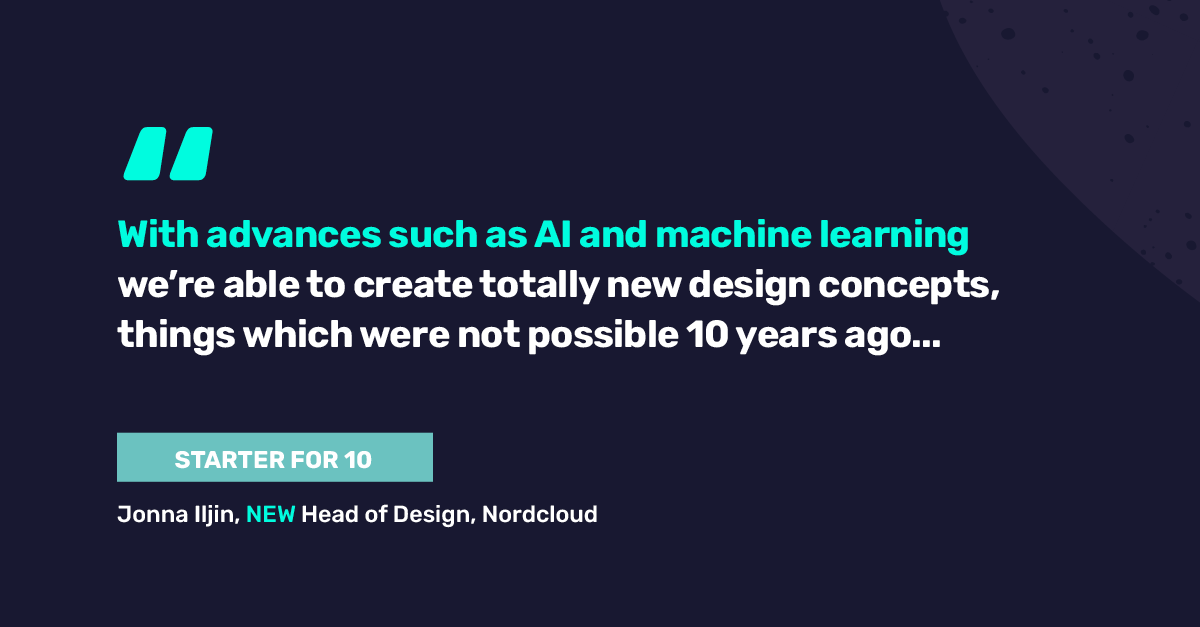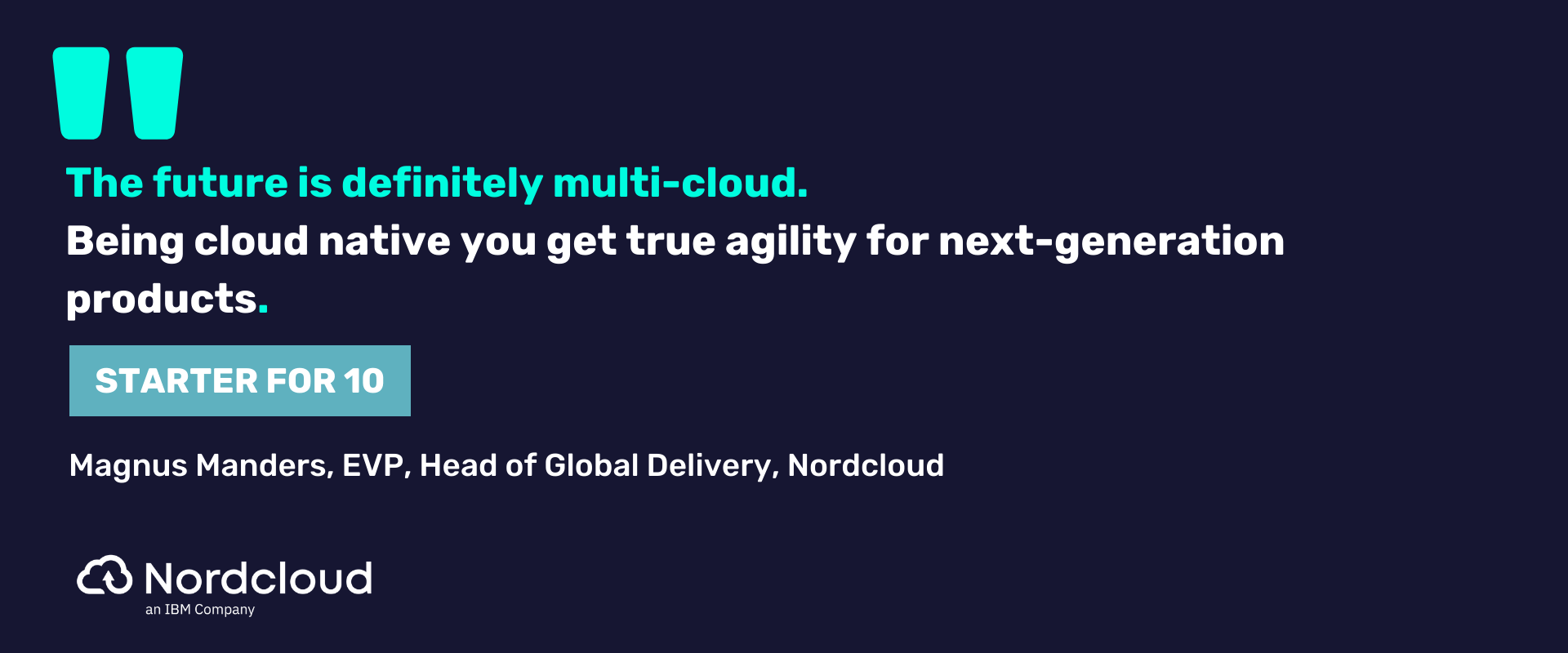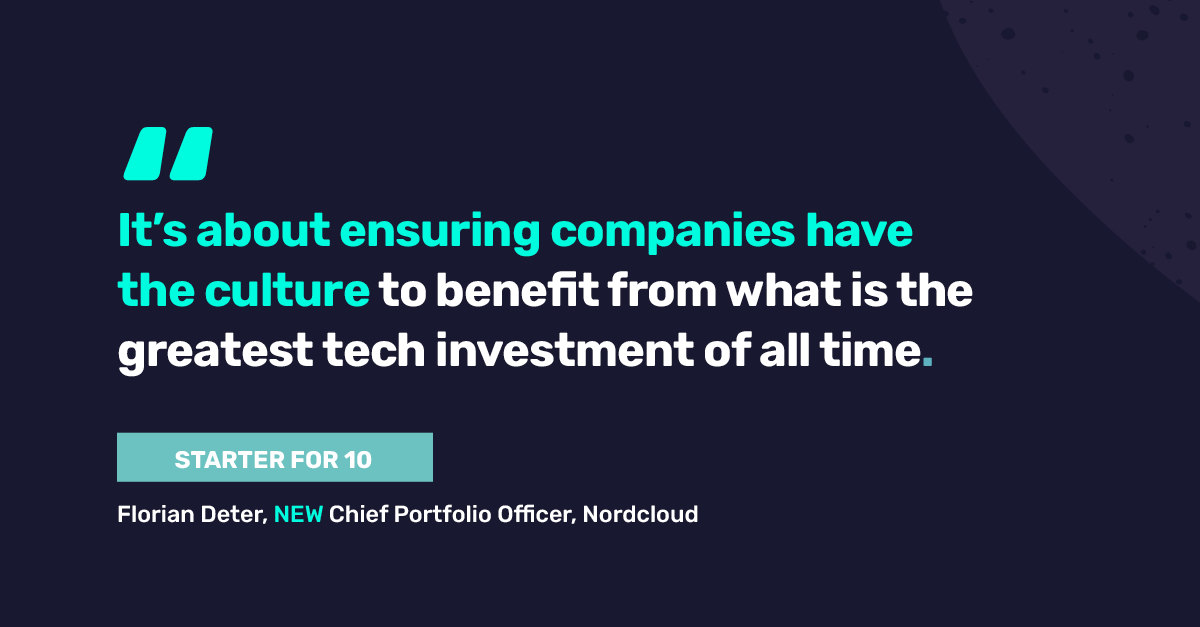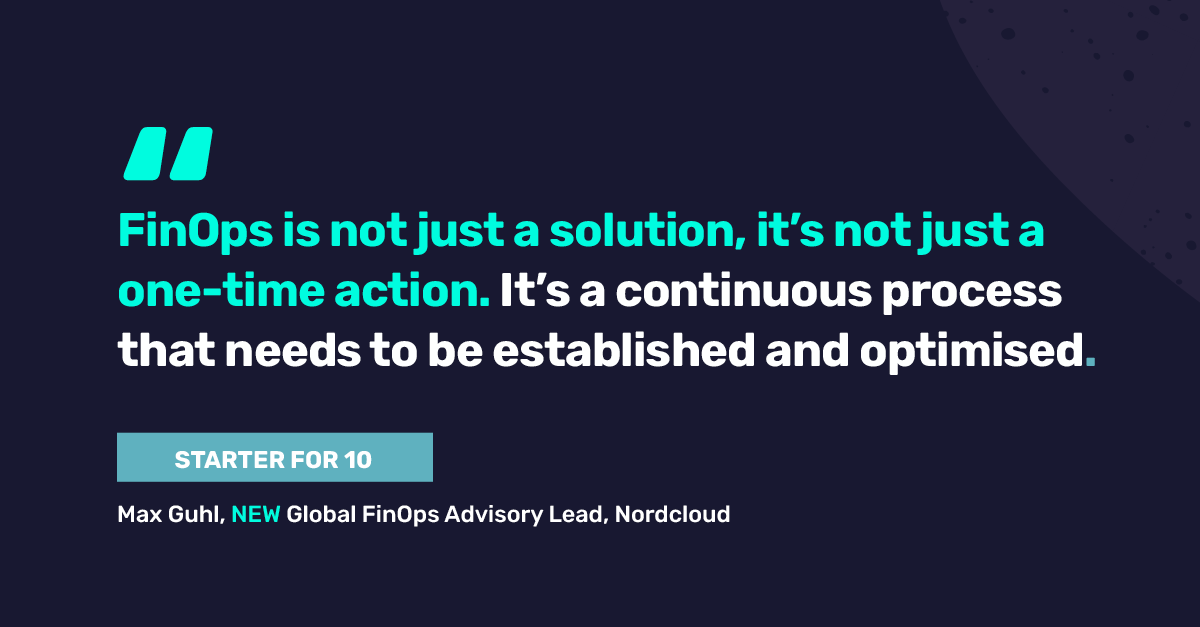
Starter for 10: Meet Max Guhl, Nordcloud’s Global FinOps Advisory Lead
When people start working with Nordcloud, they generally comment on 2 things. First, how friendly and knowledgeable everyone is. Second, how fast Nordcloud is growing.
This blog series gives you insight into both those elements – the great people and the supercharged growth. In this article, we talk to Max Guhl, Global FinOps Advisory Lead, about his first impressions as a Nordcloudian and the cloud-native future.
Q1: You joined Nordcloud fairly recently, but how did you first get involved in FinOps?
When I first became a cloud enthusiast, my focus was on anything but costs. I was more interested in how to make cloud work at scale, automating services and digging through the huge amount of hyperscaler tools available.
The cost issue first really became a focus during a project a couple of years ago, in a previous role. The customer and the team I was working with realised how much cheaper it was to run things in Lambda / Dynamo DB / API Gateway than in the original application architecture. A few tweaks to the architecture diagram took us down from well above €1,000 a month on AWS to a mere €50.
That was a real eye-opener. Of course, we all hear that ‘cloud-native can be cheaper’, but I never realised quite how much cheaper!
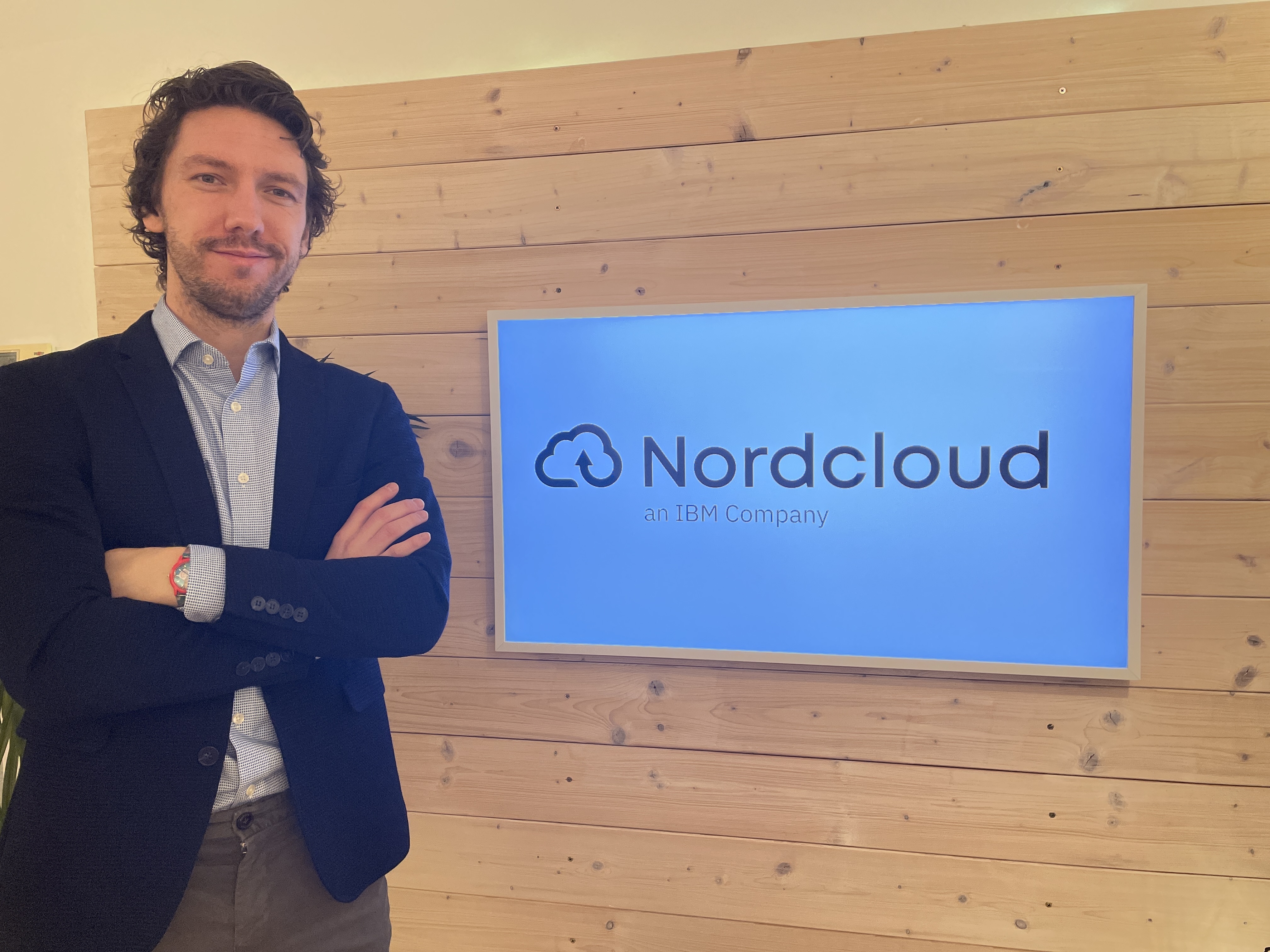
Q2: From your experience, how is FinOps different from ‘normal’ technical work?
Most other challenges in the cloud space are answered with direct, technical solutions. So, if you’re looking to autoscale, activate autoscale. If you’re looking to automate, we have automation tools.
FinOps is different. With FinOps, people always link smaller technical activities to that to save costs, but it’s not that simple. It can be more complex initially, with many fine adjustments. It actually requires a shift in people’s understanding, and their processes. FinOps is not just a solution, it’s not just a one-time action. It’s a continuous process that needs to be established and optimised.
Q3: What resources do you recommend for people who want to learn more about FinOps?
Firstly, I’d definitely recommend having O’Reilly’s Cloud FinOps on your bookshelf as a starter. Also, check out the FinOps Foundation community for a range of helpful basics and, if you’re looking for a real deep dive, prove your knowledge with the FinOps Practitioner certification, which I have done myself.
And at Nordcloud we’re providing some great tips for those interested in FinOps. Our FinOps guide gives a great base level understanding, while our FinOps 101 and FinOps 102 blogs answer some key questions around the topic.
Q4: You’re currently building a team of FinOps experts. What are the typical traits and skills you’re looking for?
It’s important to have an understanding of the technical and financial sides of things. FinOps experts have to be mediators between the architects and the management and financial teams. It’s a unique area, where you need to be able to understand numbers, understand the technical side, and explain things in a clear way to every level and stakeholder.
Q5: You have an interest in Quantum Computing - do you see any correlations between FinOps and Quantum?
It’s an interesting comparison. Quantum computing is becoming more and more democratised and accessible. Hyperscalers are super keen to provide quantum resources for tests and use cases. The resources are readily available, which makes it quite easy to access, experiment with, and eventually figure out use cases and business cases for the future.
So why is this interesting when thinking about FinOps? Well, FinOps - even if some find it a boring topic - is actually a pathway to innovation. FinOps will help businesses optimise their cloud infrastructure and processes, making them more cost-efficient, and in-turn enabling innovative technologies - like Quantum.
You can run jobs thousands of times faster than before. This means less cost, faster results, faster speed to market.
It will be easier to process and manage data. Businesses won’t need to worry about the resource needed to oversee data or processes over long periods of time, because workflows will be so fast. This fits perfectly into the notion of cloud being flexible, pay-as-you-go, just tapping resources when you need them.
Q6: What’s the biggest misconception around FinOps?
Sometimes, when we talk to businesses about FinOps, people think the result will be ‘I just have to resize servers”, or ‘I just need to scale back there’, or ‘I’ve done FinOps now, I’m finished, check.’ This is not the case. FinOps is really a culture.
It’s a lifecycle: inform, operate, optimise. It’s a continuous activity, but many don’t understand the process, or the potential results.
Also, some say it’s a blocker for everything, much like they see security or compliance services. It won’t stop anything, it’s easy to integrate and, once up and running, will provide incredible value. It gives teams the possibility to innovate, be cost efficient, and fulfil the real potential of public cloud.
Q7: What are we doing differently at Nordcloud around FinOps?
While FinOps is very often seen as a blocker or a simple task, here at Nordcloud, we’re really trying to change this in the eyes of our clients and the market. We want to make it the cool part of cloud, something fun to do. We make it attractive and actionable.
Also, with Nordcloud Klarity tools, I think we’re making it more actionable, more automated - this ‘autopilot’ approach that I think makes it more appealing. And we’re not stopping, we’ve got a great product and delivery teams here focused on making things better. It’s an exciting time for FinOps, for sure.
Q8: Do you think that there will be a time when you feel like you are ‘done with FinOps’ and start to focus on other topics?
I see FinOps as an evolving journey with lots of turns and iterations of the concept itself. Just like DevOps, it has a start, but at this point I’d say it also has no real end. This is just a new pattern of how to operate applications in the cloud and probably will be for the foreseeable future. Companies will need to adapt and learn fast to remain agile and effective on the budgeting and cost control side. By 2025, it will be too late to start thinking about regaining control over your cloud spend, and doing so not just from above, but from bottom-up preferably.
Q9: How would you describe the characteristic ‘Max Guhl’ style?
When people have a cloud consultant in mind, it’s usually a certain type of person. And there’s nothing wrong with that. It’s funny, I do believe that when people meet me they don’t expect a highly professional, high-performing cloud or FinOps expert.
In some ways, I take pride in this - I am relaxed, personable, and build excellent relationships with clients and colleagues, and I know my work speaks for itself. I can express myself, but I am also able to deliver at such a high level.
Q10: How can people connect with you?
Connect with me on LinkedIn or send me a messageI am quite active on my LinkedIn, so I’d encourage people to connect with me there. I like to share content, engage in conversations, speaking gigs, podcasts, all with the passion I have for everything cloud, technology, and FinOps.
Get in Touch.
Let’s discuss how we can help with your cloud journey. Our experts are standing by to talk about your migration, modernisation, development and skills challenges.


